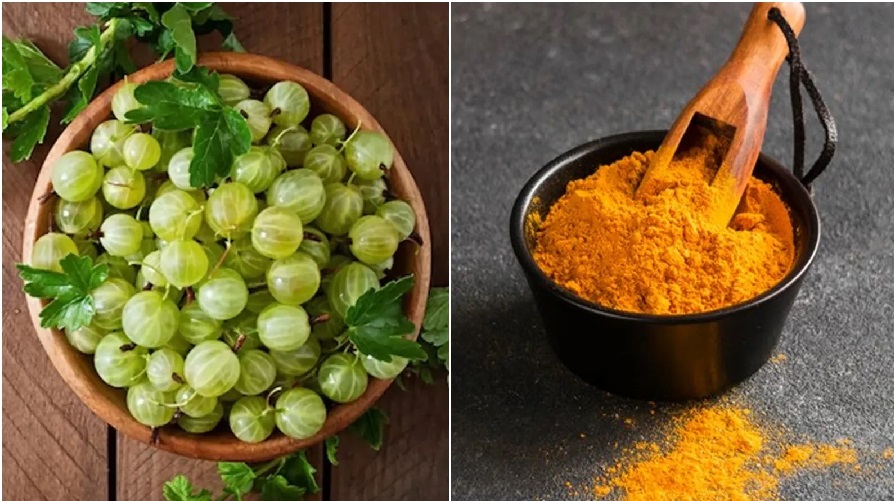These Ayurvedic herbs and foods, known for their powerful medicinal properties, provide a natural and holistic method for reducing cancer risk.

In Ayurveda, ancient wisdom merges with contemporary health needs to provide holistic solutions that have proven effective over centuries. Among Ayurveda’s significant contributions is its role in cancer prevention, utilizing the natural benefits of lesser-known herbs and foods. These botanical wonders, though not widely recognized, possess extraordinary properties that can bolster the body’s defenses against cancer. Here’s a look at Ayurvedic herbs and foods that can reduce cancer risks:
Turmeric (Curcuma longa)
Turmeric, known for its active compound curcumin, acts as a powerful anti-inflammatory and antioxidant. Curcumin has been extensively researched for its ability to prevent and treat various cancers by inhibiting cell growth and inducing the death of cancer cells.
Ashwagandha (Withania somnifera)
Renowned for its adaptogenic properties, Ashwagandha combats oxidative stress. Its bioactive compounds, like withaferin A, demonstrate anti-cancer effects by inhibiting the growth of cancer cells and promoting apoptosis. Regular use can also improve resilience to stress, which is associated with cancer progression.
Amla (Emblica officinalis)
Also known as Indian gooseberry, Amla is rich in Vitamin C and antioxidants. It helps reduce oxidative stress and inflammation, both linked to cancer. Its immune-boosting properties further enhance its role in cancer prevention.
Guduchi (Tinospora cordifolia)
Referred to as “Amrita” or divine nectar, Guduchi is a powerful immunomodulator. It strengthens both innate and adaptive immunity, which is crucial for cancer prevention. Its anti-inflammatory and antioxidant properties also contribute to lowering cancer risks.
Kalmegh (Andrographis paniculata)
Often overshadowed by more familiar Ayurvedic plants, Kalmegh is a potent cancer-preventive herb. Its principal compound, andrographolide, inhibits cancer cell proliferation and enhances immune function. Additionally, Kalmegh aids in liver detoxification, reducing cancer risks.
Shatavari (Asparagus racemosus)
While commonly associated with female health, Shatavari is also an effective anti-cancer herb. Its saponins have anti-proliferative effects on cancer cells, particularly in breast and ovarian cancers, making it a valuable tool in cancer prevention.
Manjistha (Rubia cordifolia)
Known for its blood-purifying qualities, Manjistha is a strong ally in cancer prevention. Its anti-inflammatory and antioxidant actions help neutralize free radicals, preventing cellular damage and mutations that can lead to cancer.
Lemon (Citrus limon)
Rich in Vitamin C and flavonoids, lemons have antioxidant and anticancer properties. Regular lemon consumption supports detoxification, reduces oxidative stress, and boosts the immune system, thereby lowering cancer risks.
Ragi Flour (Eleusine coracana)
This ancient grain is high in dietary fiber, antioxidants, and phenolic compounds. Ragi flour helps reduce inflammation and oxidative stress, both critical in cancer prevention. Its high calcium content also supports overall health.
Integrating these Ayurvedic herbs and foods into your lifestyle, with guidance from a qualified Ayurvedic practitioner, offers a natural approach to reducing cancer risks. Ayurveda’s timeless wisdom continues to reveal pathways to wellness, emphasizing the profound benefits found in nature.












